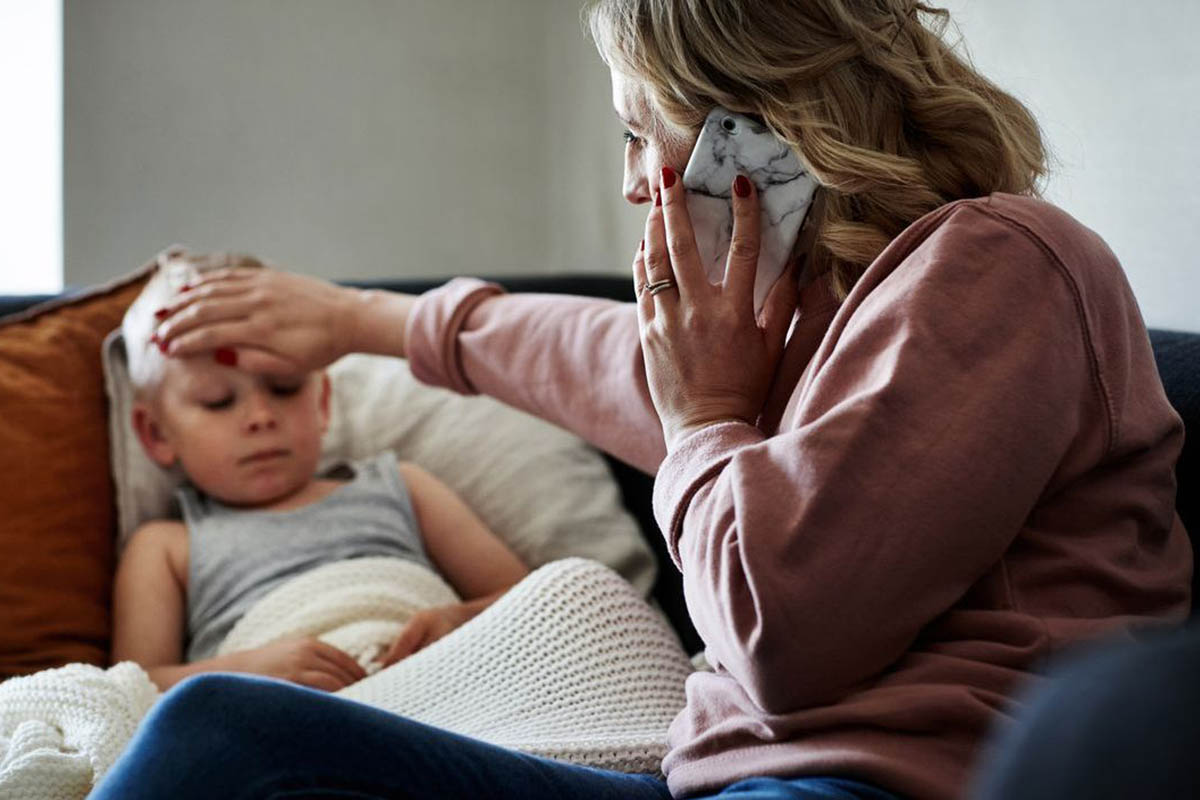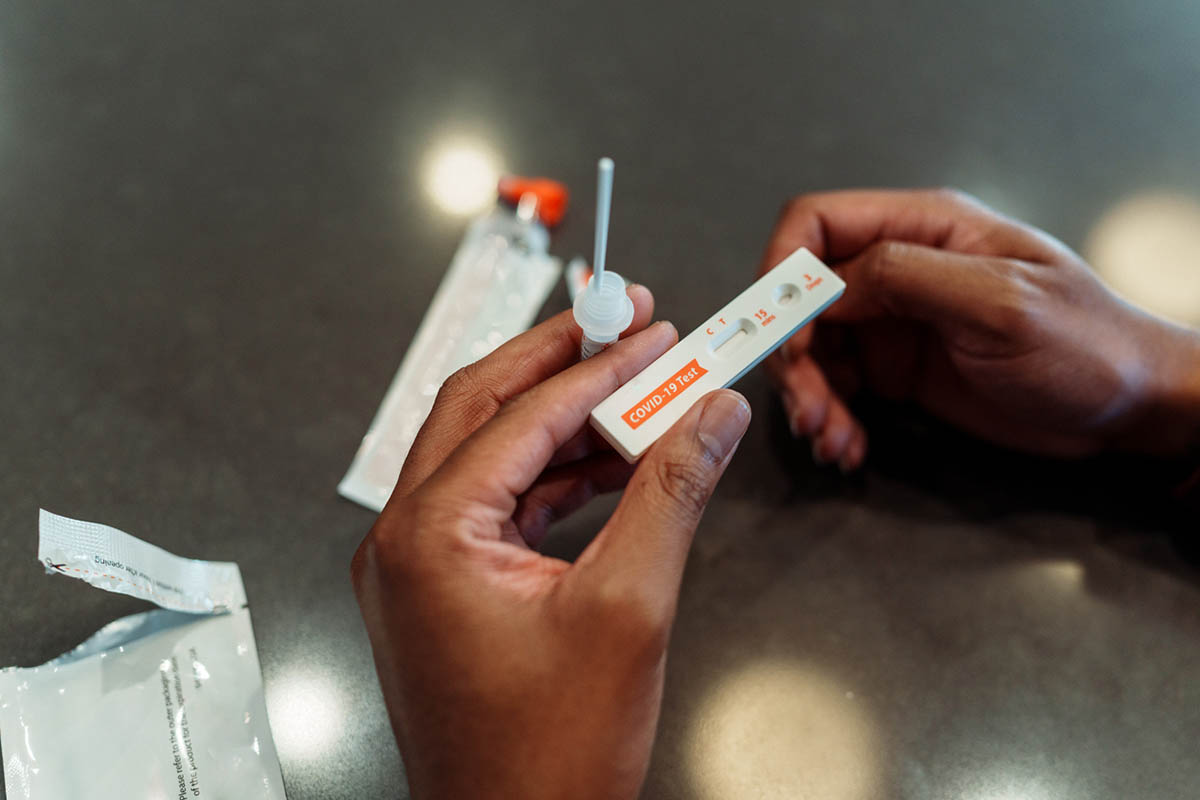
Psychological Impact of the COVID-19 Pandemic Among the Elderly:
A Case Series From India
The world is now facing the coronavirus disease 2019 (COVID-19) pandemic, which started in the Wuhan region of China and has spread to most countries around the globe.1 COVID-19 has affected all aspects of life, resulting in mass panic and hysteria.2 However, the psychological impact of the pandemic unequally affects different segments of the population, and the elderly are especially vulnerable to COVID-19-related psychiatric morbidity.2 Social isolation and loneliness are the most discussed variables affecting the mental health of elderly individuals during this crisis.3 However, many other contextual and cultural factors may precipitate new psychiatric morbidity or exacerbate existing psychiatric illness. Here, we describe 4 elderly patients who developed psychiatric morbidity during the COVID-19 pandemic and highlight the psychosocial stress that precipitated the disorders.
CASE SERIES
Case 1
An 80-year-old woman presented to the psychiatry outpatient department of our hospital in early April 2020 with complaints of multiple episodes of palpitation, worries, fear of losing control or going crazy, fear of dying, restlessness, and reduced sleep and appetite. The symptoms were precipitated by travel restrictions imposed by the government during the COVID-19 outbreak. The patient was staying in her daughter’s house during that period and could not return home. She was very concerned about these restrictions and started having recurrent thoughts that she might die and would not see her house again. She reported no past or family history of any psychiatric illness. She had no significant medical comorbidities. Her medical evaluation and routine laboratory investigations were within normal limits. Her mental status examination revealed anxious affect. She was diagnosed with panic disorder (DSM-5 criteria). The patient was educated regarding her illness and started on oral mirtazapine 7.5 mg/day and oral clonazepam 0.25 mg/day. Mirtazapine was started as an antidepressant given that she was experiencing significant insomnia and reduced appetite.
Case 2
A 66-year-old woman presented to the psychiatry outpatient department of our hospital in early April 2020 with complaints of low mood, reduced interest, poor concentration, loss of joy, loss of energy, and reduced sleep and appetite. She had recurrent depressive disorder for the last 3 years but was on no medication for more than a year. She also had comorbid diabetes mellitus. The current depressive episode was precipitated by her excessive concern for her 2 sons working in the Middle East. One of her sons was working as part of municipality staff involved in disinfecting the city. Considering the risk of COVID-19 infection to self and other family members, he had recently resigned from his job and applied to return to India. The patient talked with her sons every day over the phone and followed the COVID-19-related developments in the Middle East closely. Her mental status examination revealed depressed affect and depressive cognitions. She was diagnosed with recurrent depressive disorder, current episode moderate and was started on oral mirtazapine 7.5 mg/day and oral lorazepam 11 mg/day. Mirtazapine was started as an antidepressant considering her significant insomnia and reduced appetite. She showed significant improvement in her symptoms at follow-up 2 weeks later.
Case 3
A 63-year-old man presented to the psychiatry outpatient department of our hospital in late April 2020 with complaints of low mood, reduced interest, poor concentration, loss of joy, loss of energy, and impaired biological function. He had a past psychiatric history of depressive episode more than 20 years ago. He also had hypertension and diabetes mellitus. There was no family history of psychiatric illness. His symptoms were precipitated by the travel restrictions imposed by the government to reduce the spread of COVID-19 infection. He was actively working as a religious teacher in a mosque in a nearby district, and travel restrictions prevented him from reaching the mosque. Moreover, many people under various forms of COVID-19-related psychological distress called him repeatedly for religious advice. His mental status examination revealed depressed affect with depressive cognition. He was diagnosed with recurrent depressive disorder, current episode severe and was started on oral agomelatine 25 mg/day. He reported significant improvement in his symptoms at 2-week follow-up.
Case 4
A 69-year-old man presented to the psychiatry outpatient department of our hospital in late April 2020 with complaints of multiple episodes of palpitation, worries, fear of losing control or going crazy, and reduced sleep and appetite. The symptoms were precipitated by the lockdown. He was a practicing Muslim who attended prayers at his mosque 5 times a day and also spent many hours there reciting the Quran between prayers. The lockdown restricted his movements outside his home, and the mosque he attended closed due to a government order prohibiting religious gatherings. He was very concerned about the developments around him, which precipitated the initial episode of palpitation. He had comorbid hypertension and a past history of cerebrovascular accident and was on regular medications. His mental status examination revealed anxious affect. He was diagnosed with panic disorder (DSM-5 criteria). The patient was educated regarding his illness and was started on oral escitalopram 5 mg/day and oral clonazepam 0.25 mg/day. He reported significant improvements in his symptoms at 2-week follow-up.
DISCUSSION
We describe 4 elderly individuals who developed panic disorder and depressive disorder during the COVID-19 pandemic. However, the psychosocial stressors differed in all cases, and no patient had to face social isolation or loneliness during this crisis. In the first case, the patient was emotionally connected to her home and her inability to return there due to travel restrictions precipitated panic attacks. In the second case, the patient’s excessive concern for her children working as migrant workers in the Middle East during the pandemic precipitated a depressive episode. In the third case, disruption in work along with excessive involvement in supporting affected people as a religious teacher precipitated a depressive episode. In the fourth case, difficulty in performing religious rituals in mosque and concern with the closure of a place of worship precipitated panic attacks.
To conclude, our case series illustrates that multiple contextual and cultural variables other than isolation or loneliness can precipitate and exacerbate mental illness in the elderly. The nature of psychosocial stressors can vary with geographical and cultural differences. An attempt should be made to understand the variables negatively affecting the mental health of the elderly population during the COVID-19 pandemic across different countries and cultures so that effective services can be designed to mitigate the crisis.
Received: May 16, 2020.
Published online: June 25, 2020.
Potential conflicts of interest: None.
Funding/support: None.
Patient consent: Consent was received from the patients to publish the case reports, and information has been de-identified to protect anonymity.
REFERENCES
1. Singhal T. A review of coronavirus disease-2019 (COVID-19). Indian J Pediatr. 2020;87(4):281-286. PubMed CrossRef
2. Banerjee D. The impact of COVID-19 pandemic on elderly mental health [published online ahead of print May 4, 2020]. Int J Geriatr Psychiatry. PubMed CrossRef
3. Armitage R, Nellums LB. COVID-19 and the consequences of isolating the elderly. Lancet Public Health. 2020;5(5):e256. PubMed CrossRef
aDepartment of Psychiatry, Iqraa International Hospital and Research Centre, Malaparamba, Calicut, Kerala, India
*Corresponding author: N. A. Uvais, MBBS, DPM, Iqraa International Hospital and Research Centre, Malaparamba, Calicut, Kerala, India ([email protected]).
Prim Care Companion CNS Disord 2020;22(4):20com02675
To cite: Uvais NA. Psychological impact of the COVID-19 pandemic among the elderly: a case series from India. Prim Care Companion CNS Disord. 2020;22(4):20com02675.
To share: https://doi.org/10.4088/PCC.20com02675
© Copyright 2020 Physicians Postgraduate Press, Inc.
Enjoy this premium PDF as part of your membership benefits!





